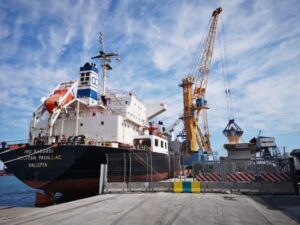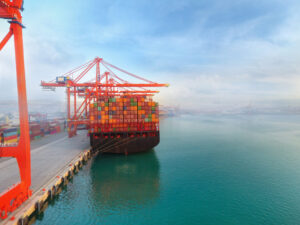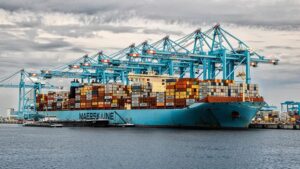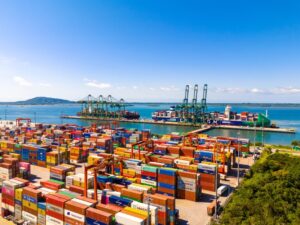After exploring opportunities for collaboration related to LNG marine propulsion technology for the last two years, the world’s largest LNG exporter Qatargas has signed a technical collaboration agreement with Maersk Group to explore opportunities related to the use of LNG marine propulsion.
The technical collaboration agreement, letter of intent, between Qatargas and Maersk was signed by Khalid Bin Khalifa Al-Thani, CEO of Qatargas, and Mr Nils S. Andersen, CEO of Maersk group, during a ceremony in Doha, Qatar.
Technical Paper: LNG dynamics will drive new port activity
In addition to the technical collaboration agreement, a second agreement, which was a Memorandum of Understanding, was signed between Qatargas, Maersk Line and Shell International Trading Middle East Limited to evaluate LNG as a marine fuel.
Khalid bin Khalifa Al Thani said: “Qatargas has a proven track record of technology innovations for different uses for LNG. In an ever changing industry, innovation becomes even more important to remain competitive.
“We look forward to pursuing this partnership with the Maersk group in order to explore new or improved technology for Qatar’s LNG carriers and at the same time being able to contribute to the development of alternative cleaner fuel technology for vessel operators.”
Technical Paper: The development of LNG bunkering facilities in Northern European ports
Maersk Line currently operates more than one in six of the world’s container vessels. Subject to the required infrastructure being made available and the development of cost-efficient LNG propelled vessels, early predictions suggest a larger scale use of this propulsion technology by ship owners in the future.
Maersk has developed an on-board lubrication oil system to recycle used lubricants resulting in savings while maintaining safe, reliable and optimised engine conditions.
Nils S. Andersen said: “This cooperation between Qatargas and the Maersk group represents an important step in developing technology to use LNG as a viable fuel for maritime transportation.
“The possible use of LNG propulsion technology for ships presents an opportunity to reduce both SOx emissions and to reduce the transport sectors CO2 footprint.”
It is estimated that the use of LNG propulsion can lead to a potential reduction in CO2 emissions of 25% compared to the use of conventional shipping fuels.
LNG has the potential to further reduce emissions from shipping of Carbon Dioxide by up to 25%; Nitrous Oxide by up to 40%; and to completely eliminate Sulphur Oxide emissions.








